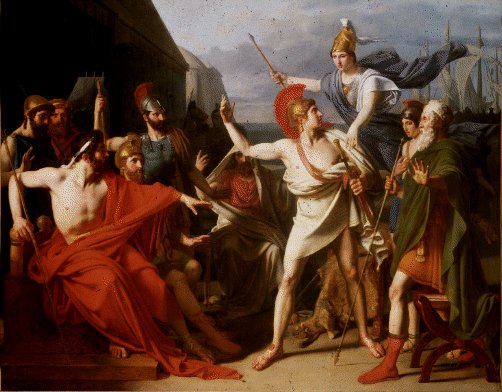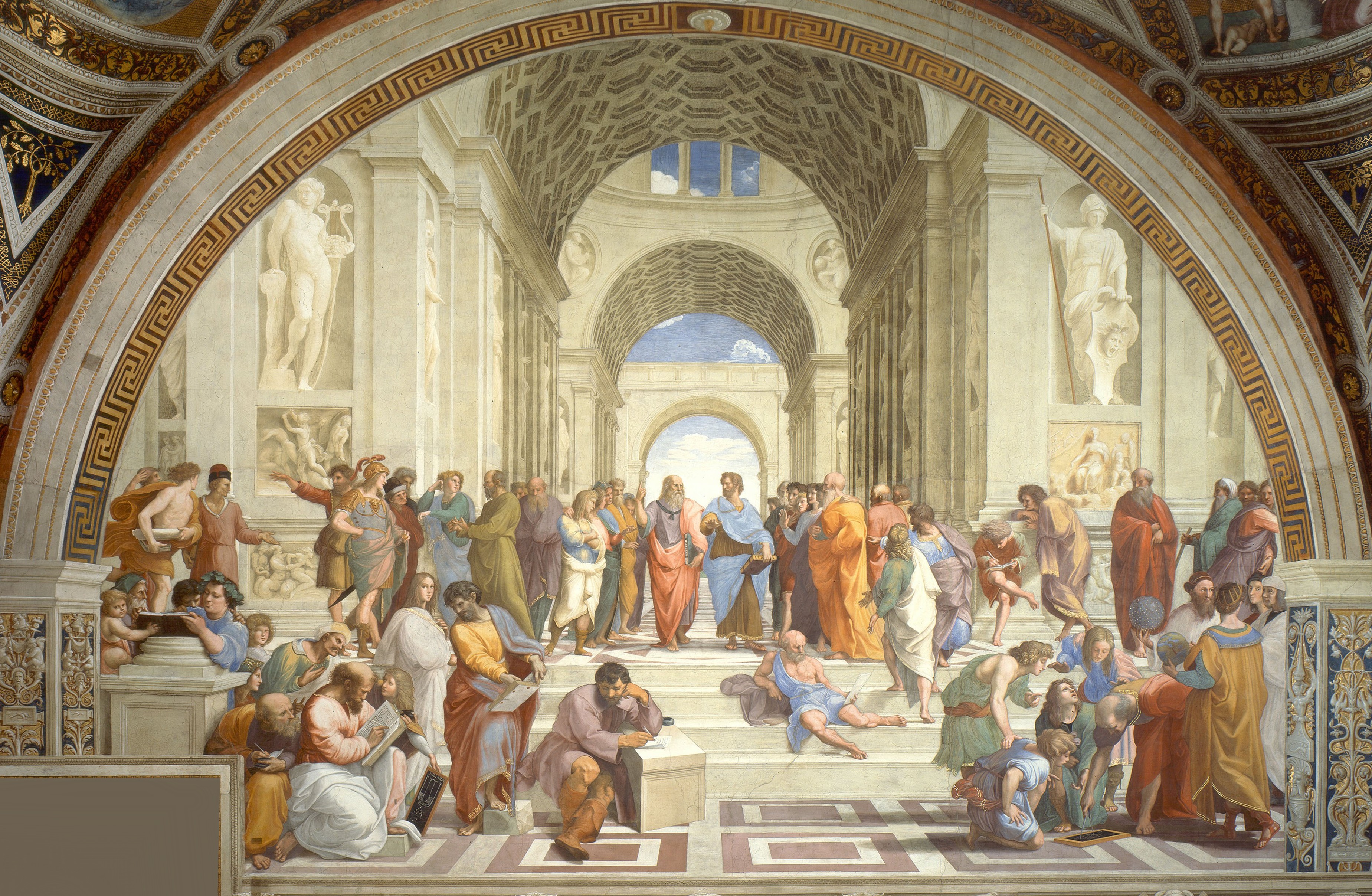 |
| Michel Martin Drolling's "Wrath of Achilles" (1810). Source: Wikimedia. |
 The Iliad by Homer
The Iliad by HomerMy rating: 5 of 5 stars
This version was quite the tome and I suffered from RSI just from holding the book. I have embarked upon the Great Books series as set out by Hutchins and Adler at the University of Chicago and this great tale is number 1. This is no small task but it is essential. Time and again I have seen movies about Achilles and the fall of Troy but there is something to be said about the various translations and notes that direct the reader to a long history of debates, arguments, and disagreements over Homer (or whether it was Homers), and then the translations that incorporate the Latin amendments (such as Samuel Butler's), and then how the "folk tradition" has twisted and turned this nation-building epic to suit different times. The movies have it that Hector was simply out-classed, not that he ran three laps around the walls of Troy trying to escape Achilles, not that the gods intervened time and again, even helping to kill other soldiers and so on. I like the introduction's idea of Hector as a complete man, husband, father, prince, warrior; whereas Achilles is the unbalanced warrior, hell-bent on death and glory. I have now started on The Odyssey and I did not know that the Trojan horse was not of the first book, I had suspicions but I did not know that Ulysses was the Latin name, and so on. Even the unpacking of these issues helps with my reading of Plato and Aristotle. I felt I had arrived at a place where reading more of the classic scholars made no sense unless I had at least a working grasp of Homer. But the manly ideal that has been bastardised by Hollywood and others has set me thinking deeply. Honour didn't mean masculine aggression at all costs, or that any man could do anything, or that class could not hold one back and so on. In the translation (rather than bastardisation) of the original, an entirely different view of masculinity emerges. These people were all fallible, all helped or thwarted by fortune, the gods played a major role in the plot (religion is all but excluded from the Brad Pitt version of the story), and Paris, a snivelling coward, is not helped out by Hector. Hector hates him! So much to unlearn from reading one of the oldest "western" texts. I shirk at this title - much like the re-writing of Greek ideas about masculinity, all of a sudden the Eastern Europeans get a guernsey in the Great Race Race because they were so brilliant. But it really does set me at ease to now see the portrayals of the Greek ideal and be able to see it for what it was meant to be. This does not help me to feel more secure in the world, but it does help me to see the world differently, and, maybe, more accurately.
View all my reviews
 Donate
Donate











 The Political Flâneur: A Different Point of View
The Political Flâneur: A Different Point of View